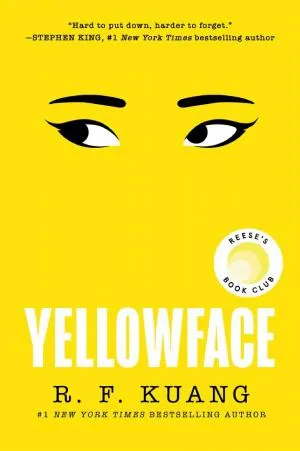
Translation means doing violence upon the original, means warping and distorting it for foreign, unintended eyes. So then where does that leave us? How can we conclude, except by acknowledging that an act of translation is then necessarily always an act of betrayal?
‘Violence shows them how much we’re willing to give up,’ said Griffin. ‘Violence is the only language they understand, because their system of extraction is inherently violent. Violence shocks the system. And the system cannot survive the shock. You have no idea what you’re capable of, truly. You can’t imagine how the world might shift unless you pull the trigger.’
The English made regular use of only two flavours—salty and not salty—and did not seem to recognize any of the others. For a country that profited so well from trading in spices, its citizens were violently averse to actually using them; in all his time in Hampstead, he never tasted a dish that could be properly described as ‘seasoned’, let alone ‘spicy’.
As long as Professor Lovell did not accept him as a son, Robin would not attempt to claim him as a father. A lie was not a lie if it was never uttered; questions that were never asked did not need answers. They would both remain perfectly content to linger in the liminal, endless space between truth and denial.
For Robin, such abstract reasoning was a reason to divest from the world, to retreat into the safety of dead languages and books. For Griffin, it was a rallying call.

Deep down, I’ve always suspected Athena likes my company precisely because I can’t rival her. I understand her world, but I’m not a threat, and her achievements are so far out of my reach that she doesn’t feel bad squealing to my face about her wins. Don’t we all want a friend who won’t ever challenge our superiority, because they already know it’s a lost cause? Don’t we all need someone we can treat as a punching bag?
“And it’s like, she just gets me, like she’s having sex with my words. Like, mind sex.” Athena giggles, then scrunches her nose up adorably. I suppress the impulse to poke it. “You ever think of the revision process as like, having sex with your editor? Like you’re making a great big literary baby?”
But enter professional publishing, and suddenly writing is a matter of professional jealousies, obscure marketing budgets, and advances that don’t measure up to those of your peers. Editors go in and mess around with your words, your vision. Marketing and publicity make you distill hundreds of pages of careful, nuanced reflection into cute, tweet-size talking points. Readers inflict their own expectations, not just on the story, but on your politics, your philosophy, your stance on all things ethical. You, not your writing, become the product—your looks, your wit, your quippy clapbacks and factional alignments with online beefs that no one in the real world gives a shit about.
When you’ve got a project in your jaws, a full-time writing schedule feels like a blessing. But when you’re struggling to come up with a concept, the hours feel suffocating, accusatory. Time should be flying by as you sit wild-eyed at your laptop, possessed by the muse, pouring out your magnum opus. Instead the seconds creep to a halt.